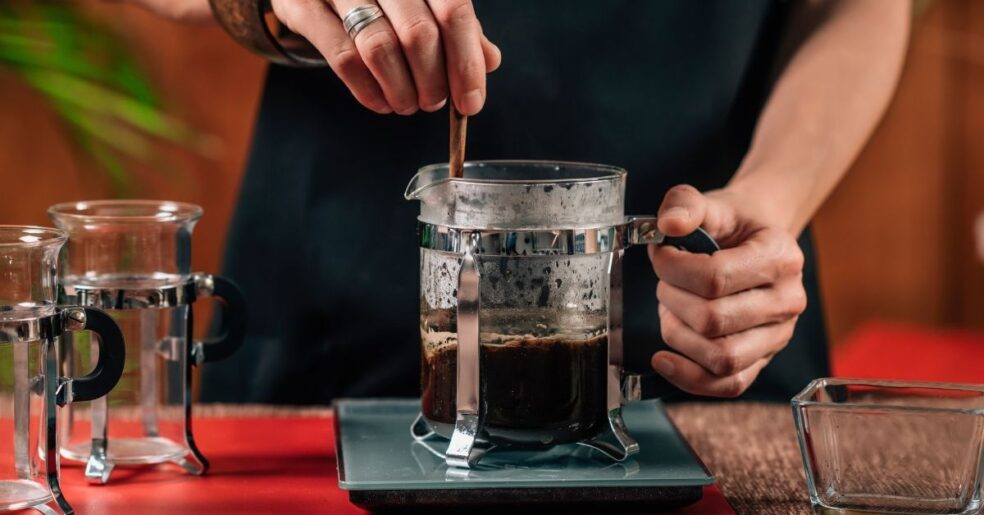If you’re a frequent French Press user, you know that coffee grinds can clump together and affect your brew quality. Stirring can fix this, but agitating the coffee too much can also reduce its quality. So, should you stir coffee in a French Press or not?
In general, we recommend gently stirring the coffee in your French Press at the beginning of the brewing process. This will evenly distribute the grounds throughout the water, and result in a more flavorful cup. However, too much stirring can cause over-extraction or increased sediment in your cup.
This recommendation is based on our results brewing several cups of coffee. And while we believe this method typically produces the best coffee, roast level, grind size, and taste preferences all play a role as well.
If you want to learn more about our results brewing French Press coffee and how these different factors can affect your brew, keep reading!
Resources We Used:
Should You Stir Coffee In A French Press?
We recommend gently stirring your coffee for a few seconds after pouring the hot water over your coffee grounds. In our experience, this method will give you the smoothest and most flavorful cup of French Press coffee.
To figure this out, we searched to see what baristas and other coffee drinkers did. Typically, we heard one of the following recommendations:
- you shouldn’t stir the coffee in your French Press,
- it’s best to stir your coffee immediately after adding the water,
- stir your coffee at the midway point of brewing,
- stir your coffee right before pressing
As you can see, we didn’t find any consensus. So, we decided to grab our French Press and a bag of Peet’s Coffee to see for ourselves which method gave the best results.
Let’s go through the methods and our results one by one.
Method 1: Not Stirring Your French Press
Hot water by itself is one way to extract flavor from coffee beans. Stirring is another way to do it.
But when you combine heat and agitation you’ll extract much more flavor from the beans, which can easily result in over-extraction.
This is the main reason people recommend not stirring the coffee in a French Press.
To test this method, we got 2 tbsp of medium size ground coffee and added 6 oz of hot water. We then let it brew for 4 minutes without agitation.
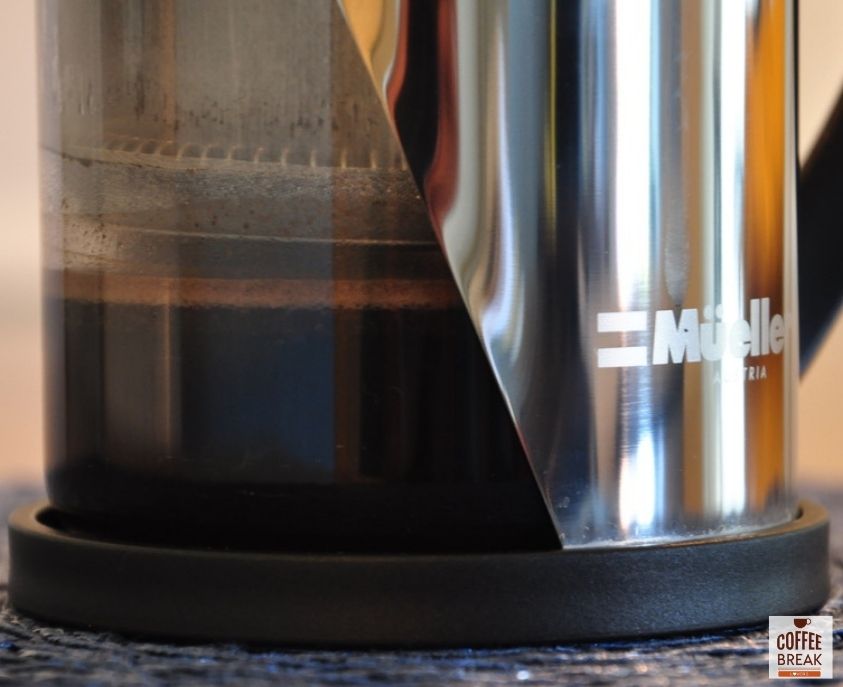
The results were a cup of coffee with very subtle flavors. It’s milder and mellower than when the coffee is stirred, which is what we expected.
However, we found that there was a bit of sediment in our cup.
We initially thought this happened because our grinds were too fine, but there was no sediment in Method #2 although we used the same size grinds.
Results
- coffee had a subtle, mellow flavor
- there was some sediment in the cup
Method 2: Stirring French Press Coffee Before Brewing
It’s possible that some coffee grinds can clump together or get stuck at the bottom of the French Press once you add the water. (Especially if your grinds are finer than recommended.)
This clumping can prevent the flavors from being fully extracted which is why some people recommend giving the coffee a quick stir.
To test this method, we poured the hot water over the coffee grounds and immediately stirred it for about 3 seconds. We then brewed it for 4 minutes and pressed.
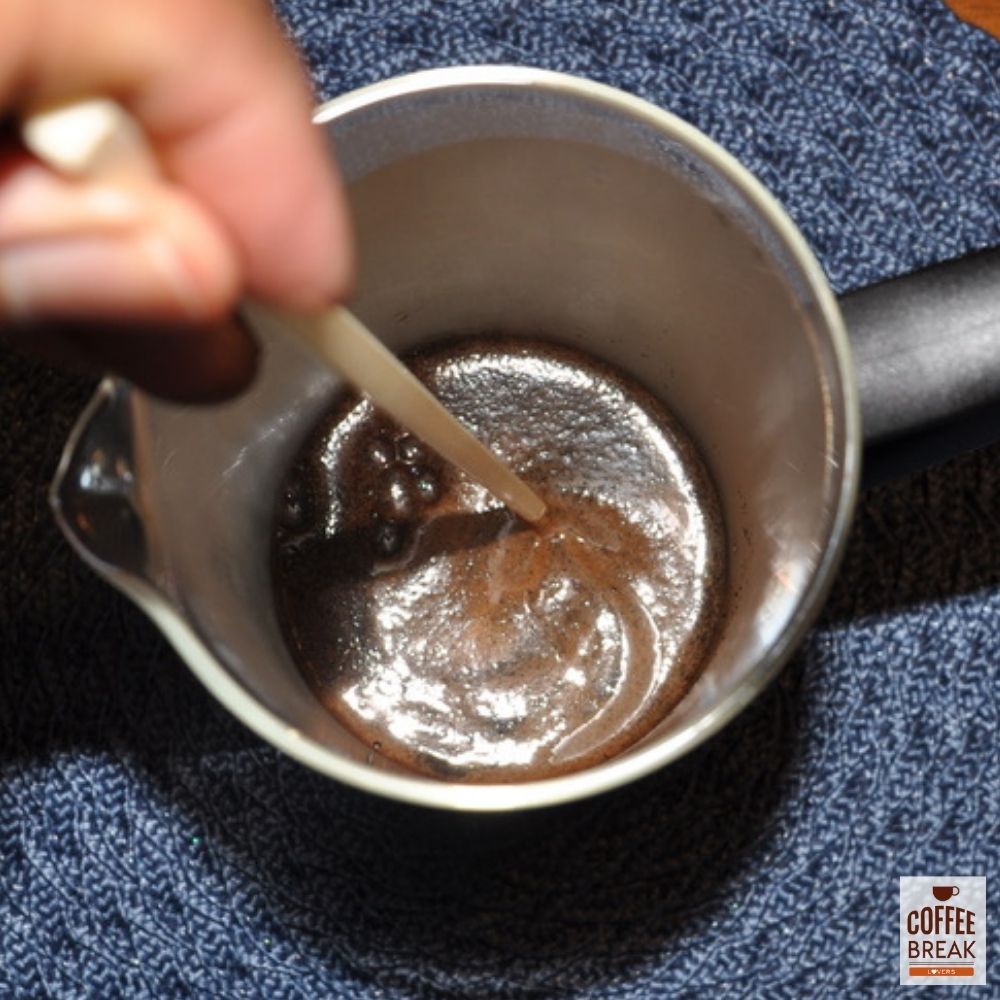
The results were more flavorful than the coffee that wasn’t stirred.
This makes sense as the agitation allowed for more extraction. However, the coffee wasn’t bitter and didn’t taste over-extracted.
We also noted that our cup contained much less sediment than the first brew.
Results
- coffee had a stronger, but not over-extracted flavor
- there was very little sediment in the cup
Method 3: Stirring French Press Coffee While It’s Brewing
We also ran across a recommendation to stir the coffee while it’s in the process of brewing, so we decided to try this method as well.
To test this method, we added the coffee grounds and hot water to the French Press as usual. However, we didn’t stir until 2 minutes had passed. We then allowed the coffee to sit for another 2 minutes before pressing.
The resulting coffee tasted bitter and over-extracted. There was also a lot of sediment in the cup.
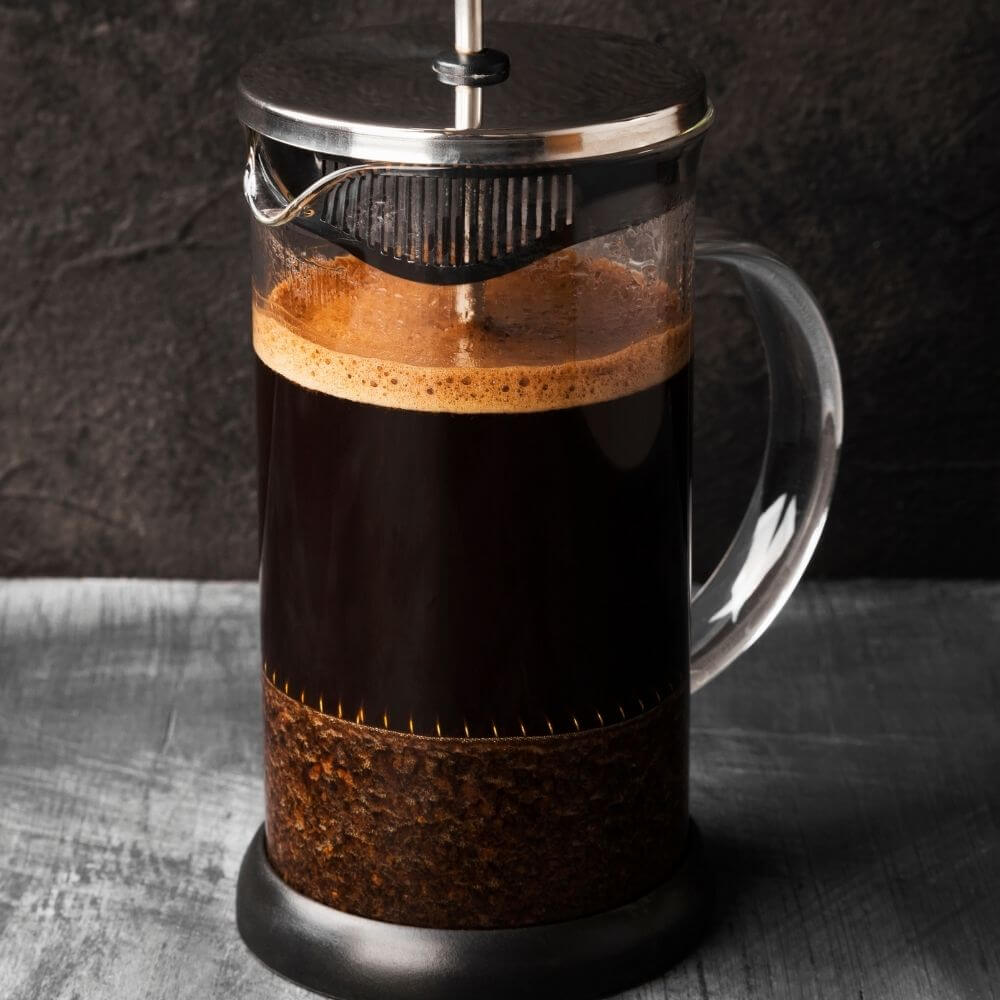
So why was the coffee bitter with this method, but not bitter in Method 2?
Well, the beans were absorbing hot water for 2 full minutes before stirring. So, the stirring caused more solubles to be extracted from the grinds.
Also, since the grinds didn’t have a lot of time to settle after they were stirred, the final cup had a good deal of sediment.
Results
- coffee had a strong and bitter flavor
- sediment in the cup
Method 4: Stirring French Press Coffee After Brewing
Usually, coffee grinds will rise to the top and create a crust on the surface of the water. Some people recommend gently stirring to break the crust or just scooping the grounds off.
To test this method, we brewed coffee for 4 minutes without agitating it. After the 4 minutes was up, we gently stirred the coffee.
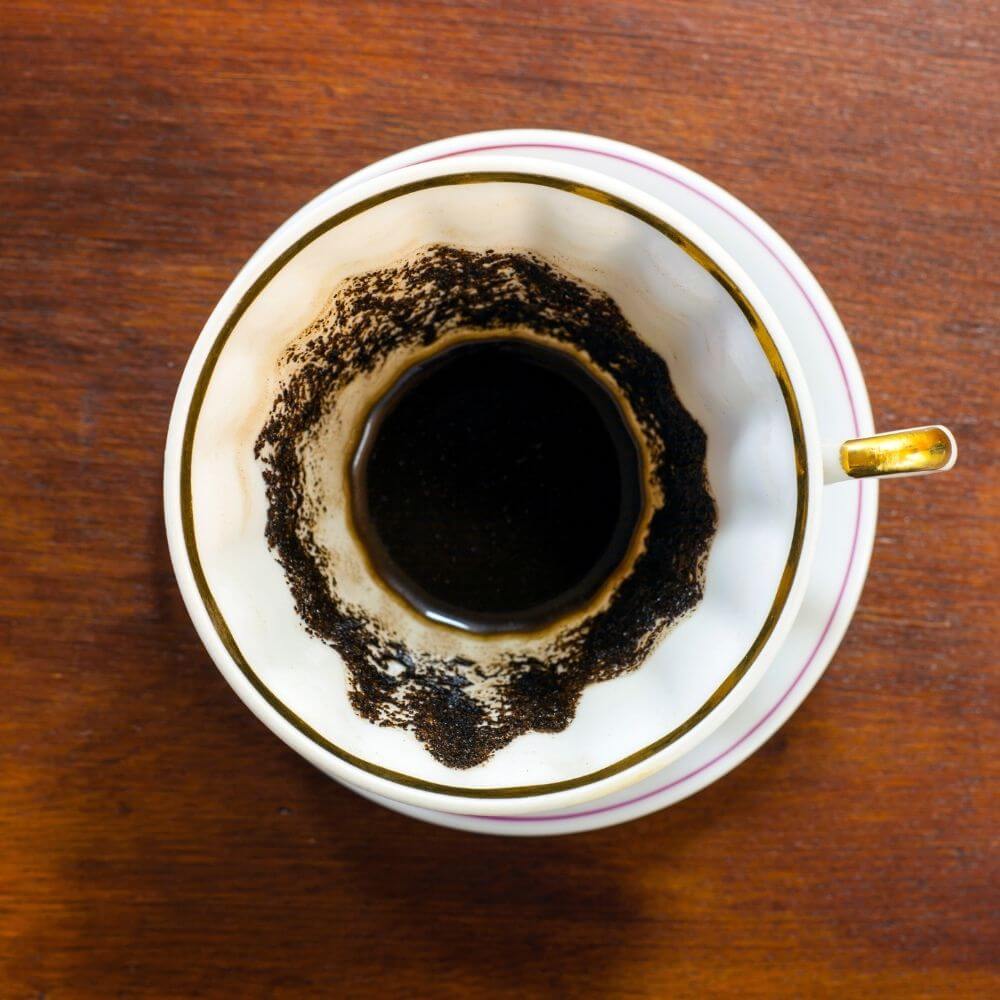
The results were a strong, bitter coffee with lots of sediment.
As with Method 3, the bitterness was most likely due to over-extraction from the agitation.
It was also no surprise that there was sediment in the cup. Since the coffee was stirred directly before serving, the sediment had no time to resettle.
Results
- coffee had a strong and bitter flavor
- sediment in the cup
Stirring Different Roast Levels In A French Press
Your decision to stir the coffee in your French Press can depend on whether you’re using light, medium, or dark roast.
Since dark roast beans are more brittle, it’s easier to extract their flavor. On the other hand, light roast beans are sturdier so it’s harder to extract from them.
If you’re using dark roast beans, our recommendation is to stir your coffee for around 3 seconds immediately after adding the water.
However, if you’re using light or medium roast, don’t be afraid to stir your coffee for a little longer than 3 seconds. Although we’d still recommend doing it immediately after adding the water so the grinds have time to settle.
Related Posts:
- Can You Use A Paper Filter In A Moka Pot? Pros And Cons!
- How To Reduce Sediment In a Moka Pot? ( 9 easy Fixes!)
Different Grind Sizes React Differently To Stirring
It’s much easier to extract coffee from fine grinds than from coarse grinds.
If you’re using coarse grinds in your French Press, you can stir a bit more without worrying about over-extraction. By comparison, stirring fine grinds will cause over-extraction much more quickly.
So, be sure to consider what size grinds you’re using before you decide to stir.
We’d recommend stirring medium grinds for no more than 3 seconds. (just long enough to break up any clumps). Coarser grinds can be stirred longer, but they’re less likely to clump so it shouldn’t be necessary.
What Type Of Spoon Should I Use To Stir French Press Coffee?
When it comes to stirring your French Press coffee, the type of spoon you use is also important.
The main options you have here are metal, wooden, and plastic spoons. And out of these three, we’d typically choose a wooden spoon for a few reasons. (We actually use a wooden spoon or a plastic chopstick)
- Heat – Plastic spoons melt easily and metal can cool your coffee. By comparison, wood won’t melt and won’t absorb much heat from your coffee.
- Damage – Most French Presses are made of glass, which a metal spoon can easily break. While wood is less likely to damage your glass cafetière.
- Flavor Change – Some people feel that metal changes the flavor of their coffee. Or at the very least an unclean spoon can impart flavors. Wood, on the other hand, doesn’t have a reputation for adding flavors to the coffee.
Key Takeaways:
- Making coffee without stirring the grinds resulted in a mellow coffee with some sediment
- Stirring French Press coffee at the start of the brewing process results in a stronger coffee
- Stirring French Press coffee while it’s brewing or after it’s done brewing gave us a bitter coffee with lots of sediment
- Roast type and grind size affect how easy it is to extract flavor from your beans
- It’s best to stir your coffee with a wooden spoon instead of a metal one
Cheers Coffee Lovers!

KEEP READING
- Is Arabica Or Robusta Best For Cold Brew Coffee?

- Why Is My Espresso Puck Wet? (The 6 Most Common Reasons)
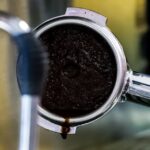
- How To Make Cuban Coffee Without A Moka Pot? (3 Options!)
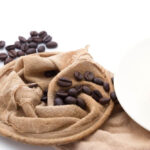
- Does Cold Brew Break A Fast? Things To Consider!

- Can I Use Coffee Grounds Twice? (Here Are Our Results!)

- What’s The Best Grind Size For A Moka Pot? Ultimate Guide!
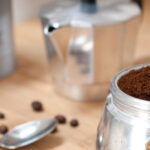

Oliver is co-owner of Coffee Break Lovers. The only thing he loves more than the process of brewing coffee is drinking it.

